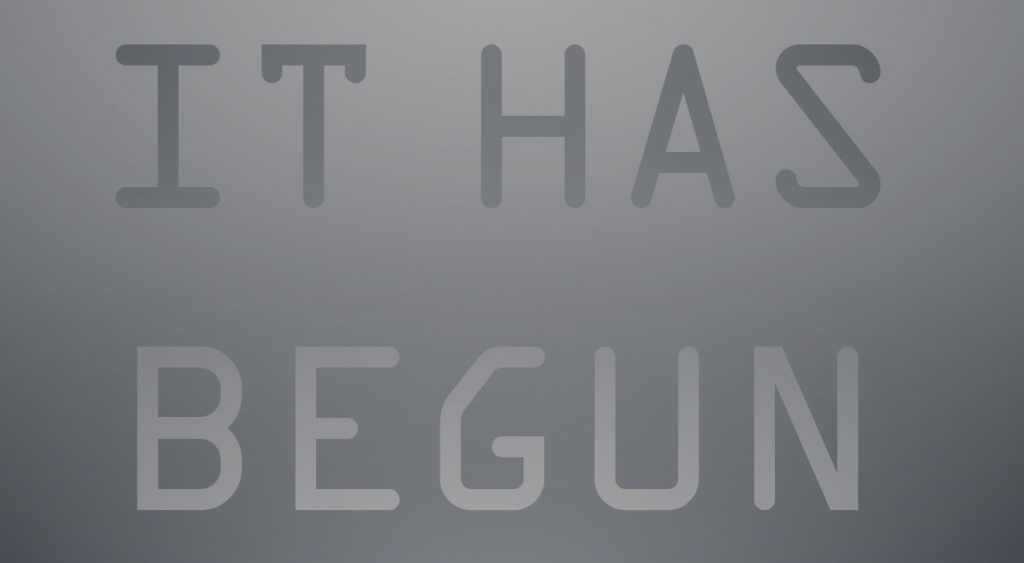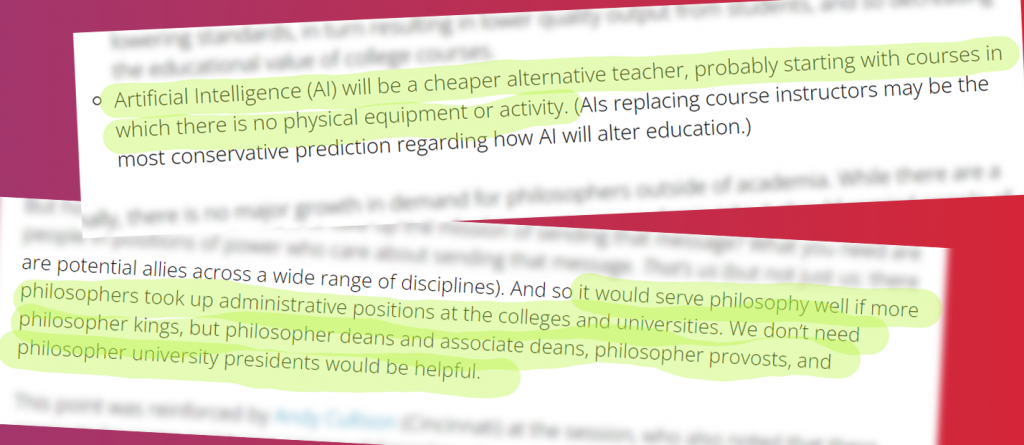BU Dean Recommends Replacing Striking TAs with AIs (updated)
The actual dean of an actual college of arts and sciences at an actual university has actually recommended replacing striking instructors with artificial intelligence apps.

Last week, graduate student workers at Boston University (BU) went on strike to demand increased stipends and improved benefits.
Yesterday, Stan Sclaroff, Dean of Boston University’s College of Arts & Sciences, emailed recommendations to faculty on how to manage course discussion and lab sections while their teaching assistants are on strike. Among his suggestions: “Engage generative AI tools to give feedback or facilitate ‘discussion’ on readings or assignments” (via The Daily Beast and a source at Boston University).
Dean Sclaroff’s home discipline is computer science.
Readers are referred to to this earlier post.
UPDATE (3/29/24): Here’s the text of the email that Dean Sclaroff sent:
To: Arts & Sciences Faculty and Staff
From: Stan Sclaroff, Dean of Arts & Sciences
Subject: Course discussion sections and labs that are impacted by the BUGWU strike
Date: March 27, 2024
Dear Colleagues, I understand that many of you have questions about how to manage course discussion sections and labs that are impacted by the BUGWU strike. I understand as well that faculty and staff are working to creatively and thoughtfully ensure our students continue to achieve their learning.
Given the disciplinary and pedagogical breadth across the College, there are a wide-range of approaches that can be taken. We know that one size does not fit all. However, in the hope that they can be useful and serve as inspiration for brainstorming, we have provided below some general guidance and examples of approaches that could be utilized during this time.
In general, you may employ all teaching modalities, including holding live Zoom sessions, sharing asynchronous recordings, or combining discussion sections. We appreciate that this openness to remote teaching is a deviation from past University guidance; however, given the circumstances and the need to support our students’ continued learning, these options may be employed. Below, we have listed some creative ways in which, we have heard, some faculty are adapting their course formats and using technology to serve their students.
For discussion sections:
-
- Combine discussion sections (on Zoom, for instance) and record the meeting so that students who are unable to attend can watch them asynchronously; those participating asynchronously can be asked to submit written exercises or complete an additional written assignment to make it clear they watched the discussion
- Assign readings and ask students to write a reflection on these readings
- Consider alternative assignments such as viewing a video/film, visiting an exhibit, or attending a special lecture on campus or in the area on a subject relevant to the course and then writing a short response
- Use Blackboard’s discussion board feature to ask students to pose questions about assigned readings and then have them respond to each other’s questions
- Engage generative AI tools to give feedback or facilitate “discussion” on readings or assignments
For labs:
-
- Deliver some labs through alternative delivery modalities, such as holding online labs or asking student to complete a literature review on conceptual topics
- Reduce the number of in-person labs (total), for instance moving weekly labs to every other week (lab formats vary across CAS, so other adjustments may be more appropriate)
- If appropriate, conduct some labs as recorded demonstrations or blended in-person labs
BU’s Center for Teaching and Learning offers faculty consultation, which can be booked here; they are prioritizing appointments for faculty with questions on these topics.
The Geddes Language Center and CAS IT can also be useful resources for technology enabled approaches.
We encourage you to connect with your colleagues to share ideas and insights about various approaches. Ultimately, you are in the best position to know what will work for your course and students, and we encourage you to think creatively about how you can best conduct your teaching during these challenging times.
Finally, we are launching a process to support replacement coverage requests. If you identify other faculty, graduate students, or staff to cover teaching activities, including discussion sections and grading, these individuals will be paid for their time. A separate email has been shared with chairs, directors, and administrators that explains how to request payment for replacements. Please coordinate with your chair, director and/or administrator to facilitate this process.
As I said in my note Monday, thank you for your advocacy, hard work, and continued commitment to and care for all of our students. Please know that the Dean’s Office and in particular your associate deans of the faculty are available to help with any questions or concerns as they arise.
Sincerely, Stan
—
Stan Sclaroff
Dean of Arts & Sciences
Boston University
Pronouns: he/him/his
The post BU Dean Recommends Replacing Striking TAs with AIs (updated) first appeared on Daily Nous.
